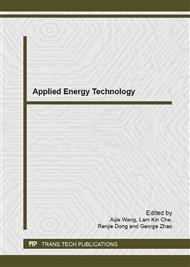p.1389
p.1393
p.1398
p.1402
p.1409
p.1413
p.1417
p.1422
p.1427
Control Strategies for AC Motor of Electric Vehicles
Abstract:
Electric Vehicles (EVs) have been the important tendency of future vehicle development. This paper discusses the performance and features of EVs with AC drive system, and analyzes two dominating control schemes of AC motor dynamic model, i.e., Vector Control (VC) and Direct Torque Control (DTC). Principles, advantages, disadvantages, research hot spots and developing directions of the two control schemes were carefully presented. Moreover, the paper points out that the two difficulties of AC drive system are improving low-speed performance and dynamic performance.
Info:
Periodical:
Pages:
1409-1412
Citation:
Online since:
August 2013
Authors:
Price:
Сopyright:
© 2013 Trans Tech Publications Ltd. All Rights Reserved
Share:
Citation:


